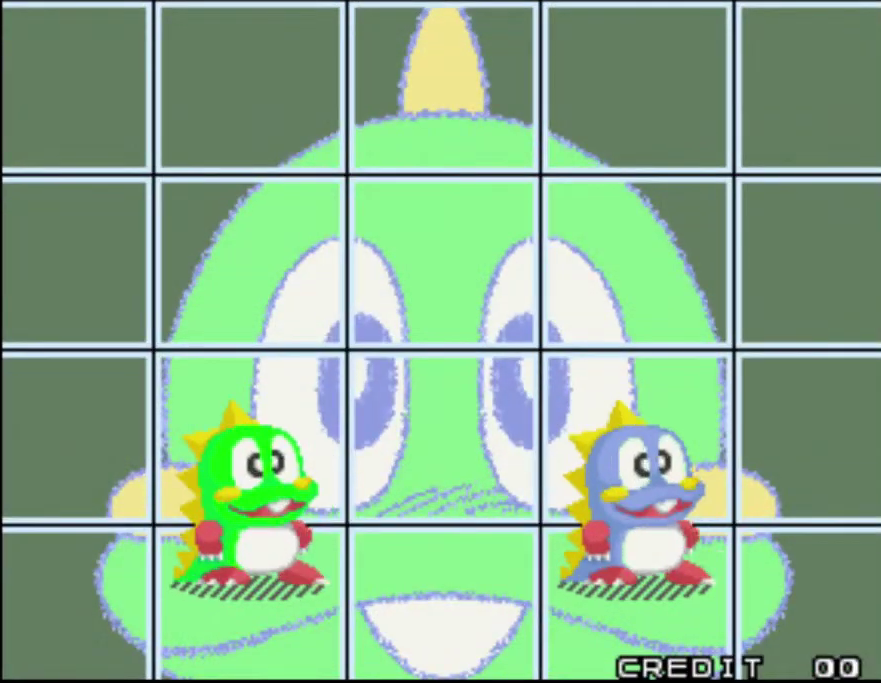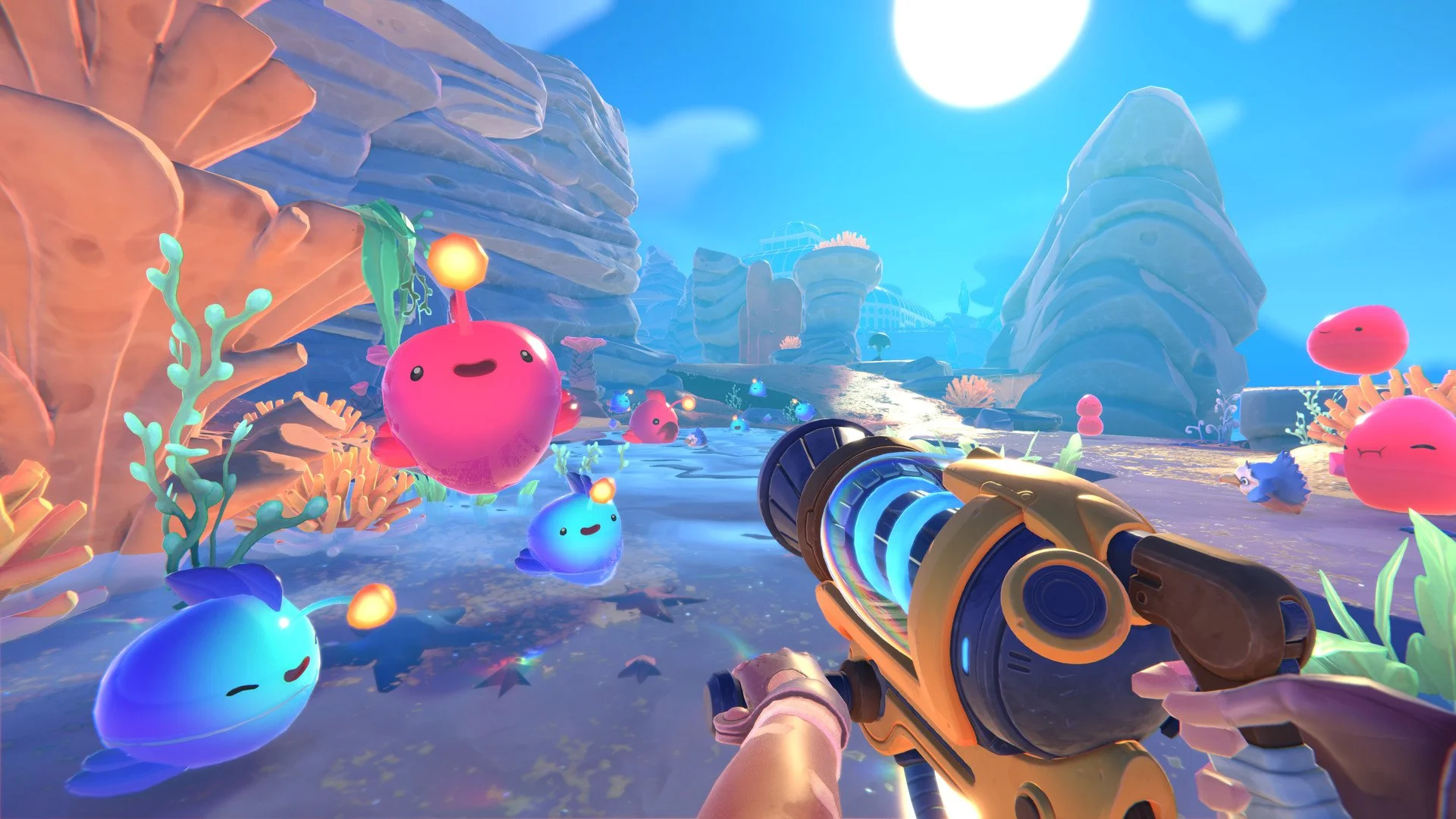When you hear the phrase "puzzle game", what titles come to mind? Tetris? Panel de Pon? Columns? Wario's Woods? Dr. Mario? Sure, those games feature colorful, randomly generated blocks that need to be cleared quickly, but -- as much as I like all those games-- think to yourself: what puzzle solving skills do you actually use? Is the puzzle the question of where the next block goes? Or is surviving the colorful onslaught the puzzle?
If I were to think of a game that requires some genuine puzzle solving skills, one that immediately comes to mind is Rupupu Cube: Lup Salad, sometimes simply known as Lup Salad. This 1996 PlayStation 1 release by Funpac and Datam Polystar with designs by manga artist Izumi Takemoto never left Japan. At least not until it was made a PSN import title in late 2012. As of this writing, December 2018, There's scarcely little information about Lup Salad on the web written in English, so it's my duty to inform y'all.
Rupupu Cube: Lup Salad is a part puzzle platformer, part match-three puzzle game. Rambunctious little blonde Salad is constantly desiring to do something cockamamie, such as wanting to go see penguins. Her dad and uncle give her the cold shoulder, Salad throws a tantrum, and then the dad tells her a story to quell her. Salad takes the role of the main character in each story. Salad's adventures in the Puzzle Kingdom have her become a nurse, a genie, a robot, etc. These stories make the "Worlds" of Rupupu Cube: Lup Salad and the "Stages" are the puzzles. 10 worlds with 10 stages each provides us with 100 workouts for the noodle.
A stage consists of one screen containing Salad and the blocks that need to be cleared. Salad can move left and right, do a quick turn (by nudging the d-pad in the direction opposite of what your facing slightly) and jump. Salad doesn't jump vertically like say, Mario would if he were stationary; your jump is always gonna be a jump forward and push-jump at that. If you reached a point where you feel you've made the puzzle unsolvable, there's a Reset Puzzle option in the pause menu. The counter in the top right corner mocks you by keeping track of your resets.
Contrary to the bouncy music and cute, innocent, child-like aesthetic, the puzzles are deceptively challenging. The first few stages are simple enough, but partway through the first world, the kid gloves come off and rarely afterwards does the game relent (Stage 2-6 and World 10 in particular nearly broke me). Some puzzles involve multiple stacks of blocks and you have to be careful how you clear them. This a push-only puzzle game: Salad can only directly interact with blocks on her left or right. If you push the bottom of a stack and a block above falls on top of you, she'll be crushed and you'll die; forcing you to restart the puzzle over.
Some puzzles present intricate problems that require a lot of back-and-forth and carefully lining up your blocks. Others are about trying to pull off a massive chain reaction with one decisive move. Others are as easy as they look. Lup Salad gradually introduces new block types in the later worlds that complicate things. The difficulty of the game is in constant state of flux that will keep you guessing throughout your playthrough! These are puzzles that you might even need to keep a notebook handy for!
My first playthrough of Lup Salad took me about 6 hours elapsed time which I think is a fair length for a game of this type. If the puzzle stages start to wear you out or you want to see what else Lup Salad has to offer, the game also features a Line Clear Mode for 2 players. It's very similar to Panel de Pon or Columns but plays by Lup Salad's rules.
Besides the PS1 version, later released on Japanese and North American PSN, (original text only) Lup Salad made its way to Nintendo DS and PSP. I sadly never played Lup Salad DS, but I daresay that even though I've played it a little bit, the PSP version, Rupupu Cube: Lup Salad Portable Matatabi, is even better than the original with sharper graphics, animated cutscenes and Catnip Mode! These titles were never physically or digitally released outside of Japan and will cost you a pretty penny if you're importing.
Beneath it's cuddly, huggable, warm and fuzzy exterior, Lup Salad offers some of the most brain-bending puzzles you could ask for in a video game. It's a must play for anyone who wants a challenging puzzle game.

























